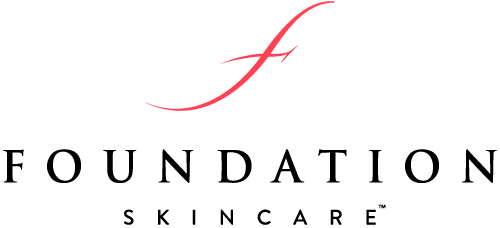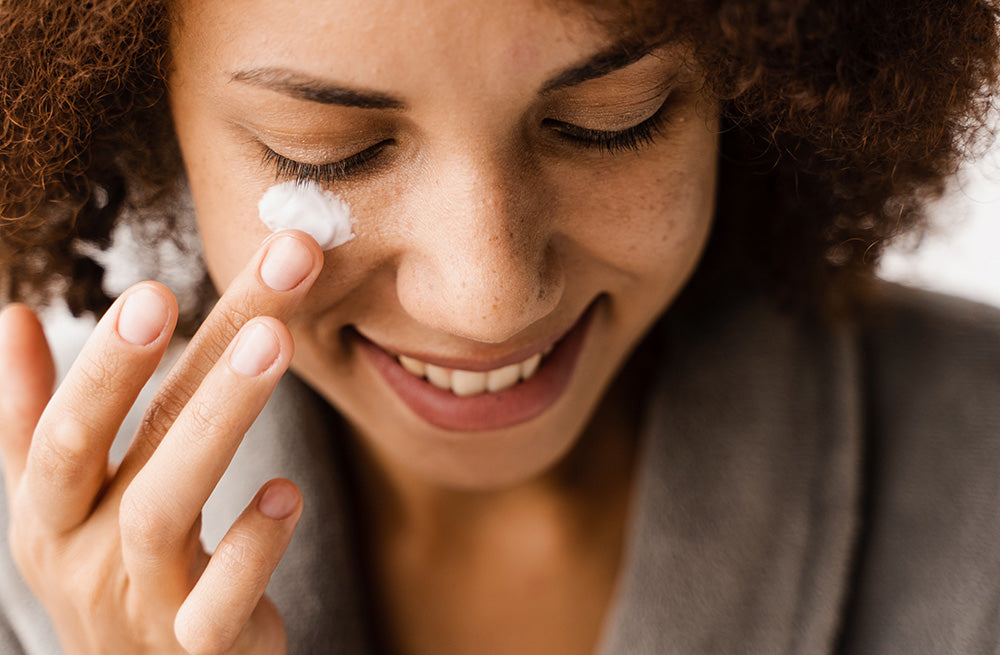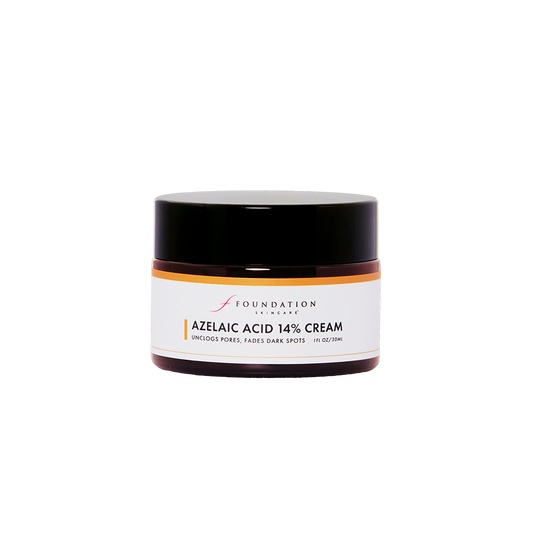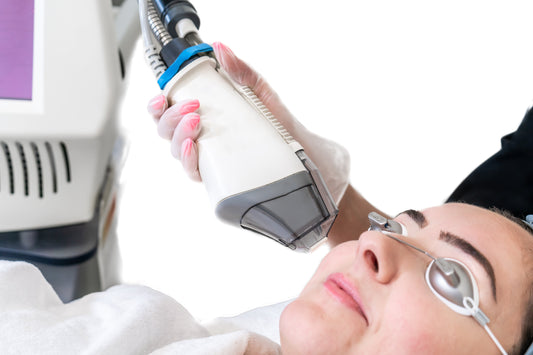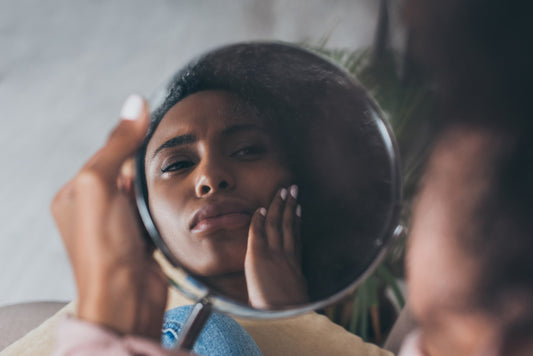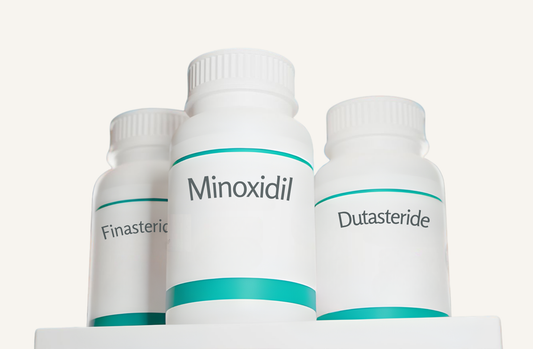From proactive prevention beloved by Gen Z-ers to skin flooding dominating TikTok, the skincare trends of 2023 are less about using miracle ingredients to reverse aging and more about getting back to basics to delay it.
These are the latest trends in skincare you should know about:
1. Skin Cycling
Coined by New York dermatologist Whitney Bowe, MD, skin cycling refers to the intermittent use of active ingredients like retinoids and exfoliators to promote skin cell renewal. Over the course of four days, different products are integrated into your nightly routine, leaving room for “rest” days just like you’d have in an exercise regimen. A skin cycling routine looks like this:
- Night one: Exfoliate
- Night two: Apply retinoids
- Nights three and four: Take rest days that focus on hydrating skin and supporting barrier repair
When you complete the cycle, you should begin another, allowing ingredients to complement each other instead of causing irritation with too much layering.
During the mornings, you should keep your routine as simple as possible with a gentle cleanser and moisturizer, like the gentle Hyaluronic Acid Cream or daily essential Azelaic Acid Cream from Foundation. Since the term skin cycling is relatively new (though the concept is not) there is not much evidence that it works. However, experts do encourage alternating the use of powerful products like chemical exfoliants and retinoids. According to the Cleveland Clinic, rotating alpha-hydroxy acids with retinol work well to reduce the appearance of dark spots and scars from acne while minimizing the risk of irritation.1 They also suggest combining retinol with niacinamide, a vitamin B3 derivative that can help clear acne while counteracting the irritating side effects of retinol. Foundation Skincare also offers a Niacinamide Lotion product, which helps to increase ceramides (healthy fats) in the skin.
2. Skin Minimalism
When it comes to skin minimalism, or skinimalism, less is more. People are hungry for products that incorporate multiple ingredients that work synergistically instead of filling their drawers with costly products that take too much time to apply. Skin minimalism can also mean focusing on the basics: a cleanser, a moisturizer, and a sunscreen. After all, according to a review published in Dermatologic Clinics, the most important steps of every skincare regimen is facial cleansing and moisturizing.2 This should be the foundation.
Those opting for skin minimalism may want to give their skin a break from too many competing chemicals, but they also may like the low cost and low environmental impact of this approach.
Skin minimalism may also be appealing to those with skin conditions like rosacea, eczema, and psoriasis, because their skin may be extra sensitive to a multi-step routine.
3. Proactive Prevention
Prevention and preservation of youthful skin is a hot topic among millennials and Gen-Zers who may just be noticing the first signs of aging (or dreading their arrival). For some, this may include injectables or other slight enhancements; but for others, using key ingredients like vitamin C and retinoids are thought to delay the signs of aging altogether.
Here’s what the science says about some of these key ingredients:
- Vitamin C: As an antioxidant, vitamin C fights harmful free radicals that come in contact with your skin to reduce the appearance of wrinkles, fine lines, and dark spots. When used with sunscreen, the effects are even more powerful. Studies have shown that when vitamin C and sunscreen was used together, the combination helped to protect the skin from long-term damage from UV rays.3 Foundation’s Vitamin C lotion has a higher concentration than most other serums, and because it is a lotion, it minimizes irritation and is easier to distribute. The lotion also has Vitamin E for extra antioxidant power to help boost results.
- Retinoids: By increasing the production of collagen in the skin and stimulating the production of new blood vessels, retinoids may slow the signs of aging and improve skin tone.4
- Hyaluronic acid: One of the biggest reasons we get wrinkles and fine lines is a loss of moisture in the skin. Research shows that the key molecule involved in skin moisture is hyaluronic acid, which has a unique capacity in retaining water.5 Adding hyaluronic acid to your skincare routine can help maintain and restore moisture in the skin, warding off the telltale signs of aging.
4. Skin Lotions Over Serums
Building on the skin minimalism approach, another trend in 2023 is preferring skin lotions over serums. Instead of targeting specific issues like pigmentation or wrinkles with a potent serum and then applying a moisturizer, choosing a lotion that already includes one of these key ingredients takes a step out of the process while taking up less space on your shelf. Using a lotion over a serum also means reducing the risk of skin irritation while instantly locking active ingredients into the skin by supporting the skin barrier.
Foundation Skincare offers a variety of different lotions to target different issues:
- Azelaic Acid 14% Cream: Ideal for reducing acne, rosacea, and hyperpigmentation, this daily essential lotion is dermatologist and chemist engineered with the highest non-prescription percentage of azelaic acid. It helps to soothe and manage symptoms without irritating skin like highly concentrated serums and gels.
- Hyaluronic Acid Lotion: This lotion helps to hydrate and restore dull skin while reducing fine lines and wrinkles. Combining a daily dose of hyaluronic acid with a moisturizing base, the lotion can be used day and night without causing irritation or clogged pores.
- Vitamin C Lotion: Pairing 20% Vitamin C with a hydrating base, this lotion moisturizes, brightens, and protects your skin without drying it out. The antioxidant effects of vitamin C also help to boost collagen production, adding youthful firmness to the skin.
- Niacinamide Lotion: Niacinamide serves many functions in promoting healthy skin: increasing the production of ceramides (healthy fats in our skin), while decreasing the production of sebum (oily substance that contributes to acne). This helps to ease inflammation and pigmentation while protecting and moisturizing the skin.
5. Skin Barrier Health
Your skin barrier is made up of lipids, fatty acids, and ceramides, which protect you from infection, harsh chemicals, and allergens. It can also prevent water loss and the wrinkles that come with it. When it becomes compromised, you can experience a range of conditions like acne, eczema, or atopic dermatitis. Irritating skin products and excessive sun exposure could damage the skin barrier and make you more vulnerable to these skin conditions while accelerating sights of aging. Hyaluronic acid is becoming a crowd-pleaser for those interested in protecting their skin barrier and restoring moisture.
Azelaic Acid 14% Cream
• Brightens skin, fades brown spots
• Unclogs pores, improves texture
6. Multi-Use Products
Similar to lotions that target skin issues while moisturizing, other multi-use products are all the rage in 2023. These include cleansers that exfoliate, makeup products that include SPF, and even nutritional supplements that can serve multiple functions like reducing pigmentation while boosting your immune health. These products require less time and are intended to be just as effective at healing and protecting the skin. But it’s important that the product isn’t making too many promises, as more uses can also mean more chemicals, leading to irritation.
7. Injectables
We’re all familiar with Botox and dermal fillers, but 2023 is bringing on a number of other injectables that are intended to harness your body’s own anti-aging processes. Some injectables aim to stimulate collagen production to plump up skin and refine its texture. Keep in mind that many buzzy injectables are not yet approved by the FDA and their long-term effects are unclear, so they should always be approached with caution.
It’s also good to note that hyaluronic acid, which is used in many dermal fillers, has just as much benefit as a topical if it has low molecular weight. Studies show that topical hyaluronic acid is highly tolerable and effective at improving skin smoothness, plumpness, hydration, and fine lines without causing irritation.6
8. Bodycare
Why should skincare be limited to the face? Another 2023 trend is bodycare, which uses the same anti-aging ingredients like retinol and niacinamide on other parts of the body. Products that combine skincare and bodycare are especially useful such as those containing peptide growth factors that boost collagen and elastin, which can be found in Foundation’s Firming Neck Cream. Formulated to treat the delicate skin on your neck and décolletage, the neck cream helps to lift, strengthen, hydrate, and firm loose, crepey skin.
9. Skin Flooding
You’ve likely seen #skinflooding trending everywhere on TikTok this year. It refers to a trend of layering damp skin with a variety of hydrating mists, serums and creams to “flood” the skin with moisture. In a way, it’s the antithesis of the minimalistic approach. To enhance moisture, products are meant to be layered with the lightest products first and then sealed with a heavier product on top. However, skin flooding can also lead to irritation and clogged pores if the products do not interact well. A less risky form of skin flooding is to apply moisturizing hyaluronic acid first before a moisturizer or use a lotion that combines both. If you’d like to try skin flooding, try this routine with Foundation Skincare products:
Morning routine:
- Cleanse skin with a daily cleanser or gentle exfoliator
- Apply Niacinamide Lotion 10% to aid DNA repair
- Use the Vitamin C Serum to protect and brighten skin
- Apply a thin layer of Azelaic Acid 14%, our daily essential cream
- Moisturize with Hyaluronic Acid Lotion
- Protect skin by applying a minimum SPF 40+
Nightly routine:
- Cleanse skin
- Apply Niacinamide Lotion 10%
- Use Vitamin C Serum
- Moisturize and restore with Night Renewal Cream made with 2% Granactive™ Retinoid, which boosts collagen and repairs skin barrier
- Hydrate with Hyaluronic Acid Lotion
10. Home Skincare Devices
If you’ve ever used a device for your skin, chances are you did so in a spa or dermatology office. But home skincare devices are trending in 2023 for a DIY approach. This includes LED light therapy to stimulate collagen, cryotherapy to tighten up pores, and even microcurrent devices intended to tone facial muscles.
The thing about trends is that they are often temporary, but if you find a routine or product that works for you, there’s no need to jump on the next trend. You may not end up viral on TikTok, but you probably won’t need to use a filter either.
References:
-
https://my.clevelandclinic.org/health/treatments/23293-retinol
-
https://pubmed.ncbi.nlm.nih.gov/30466682/
-
https://www.bcm.edu/news/benefits-vitamin-c-skin-care
-
https://www.aad.org/public/everyday-care/skin-care-secrets/anti-aging/retinoid-retinol
-
https://www.ncbi.nlm.nih.gov/pmc/articles/PMC3583886/
-
https://link.springer.com/article/10.1007/s13555-021-00566-0
-
https://www.ncbi.nlm.nih.gov/pmc/articles/PMC7736837/
